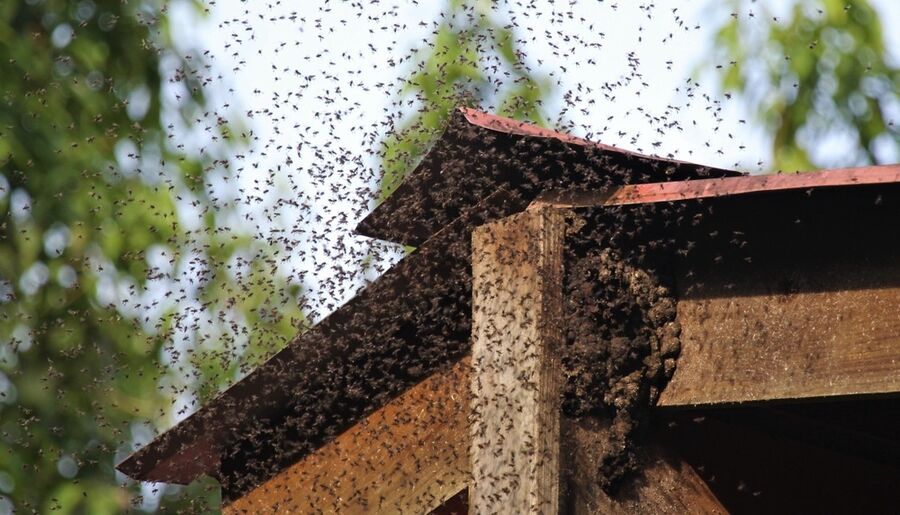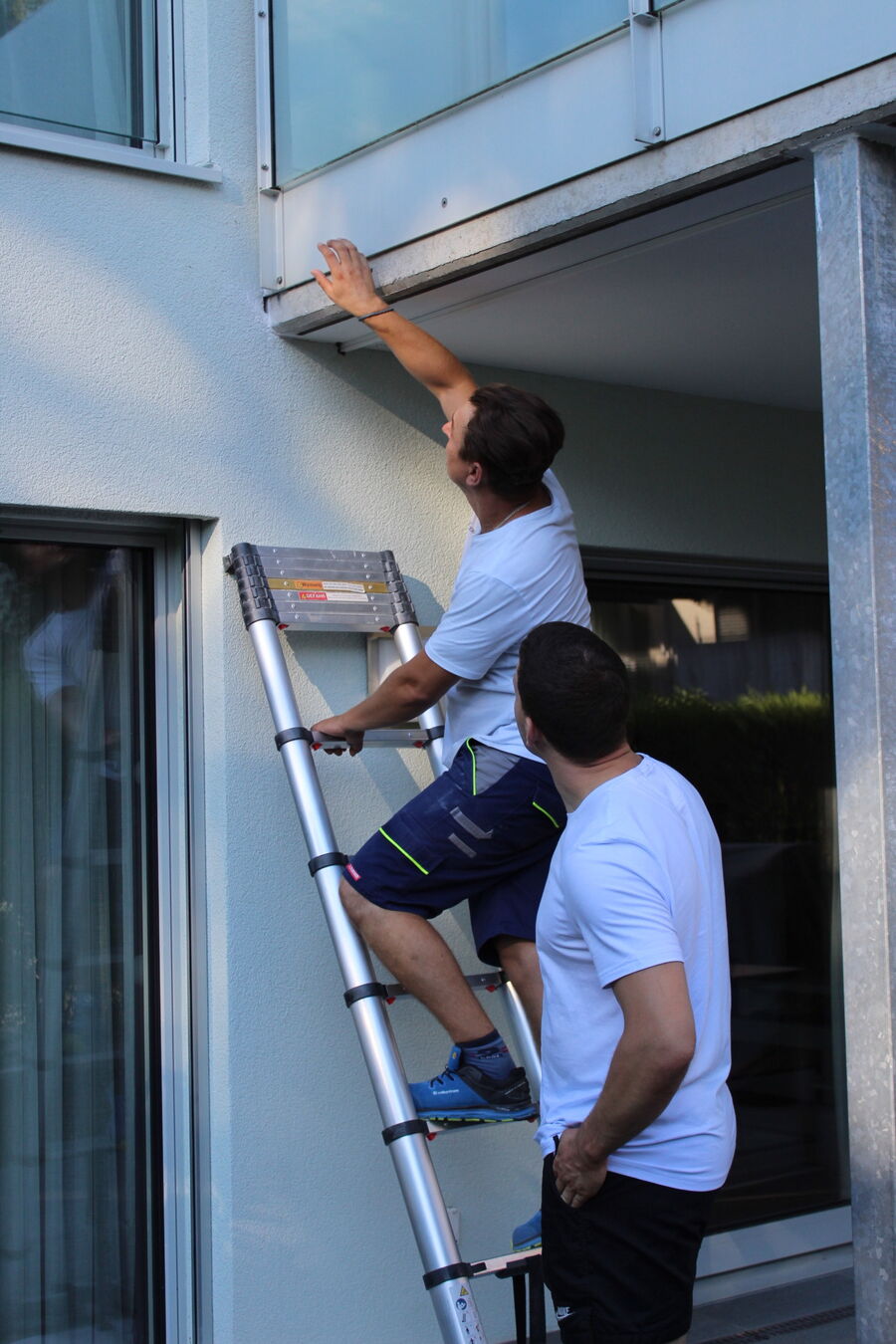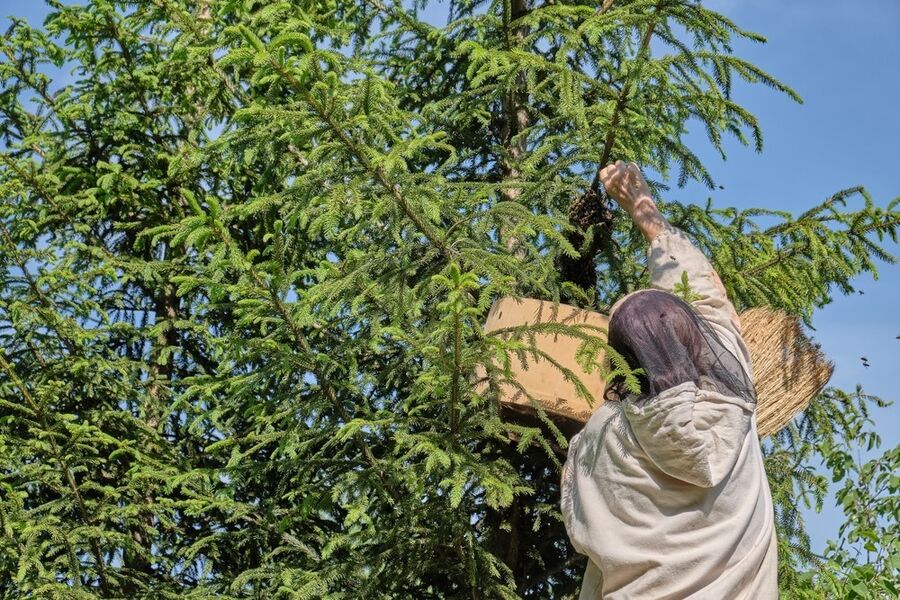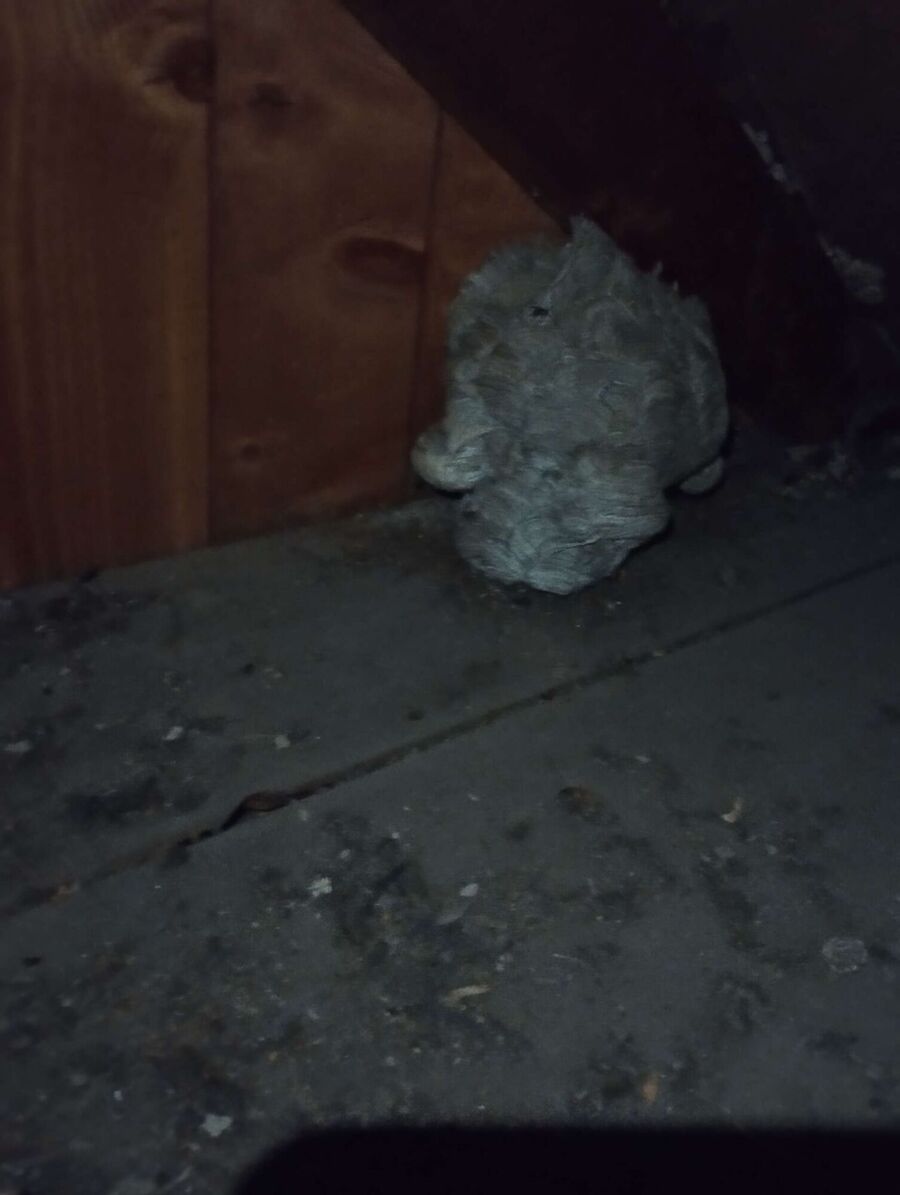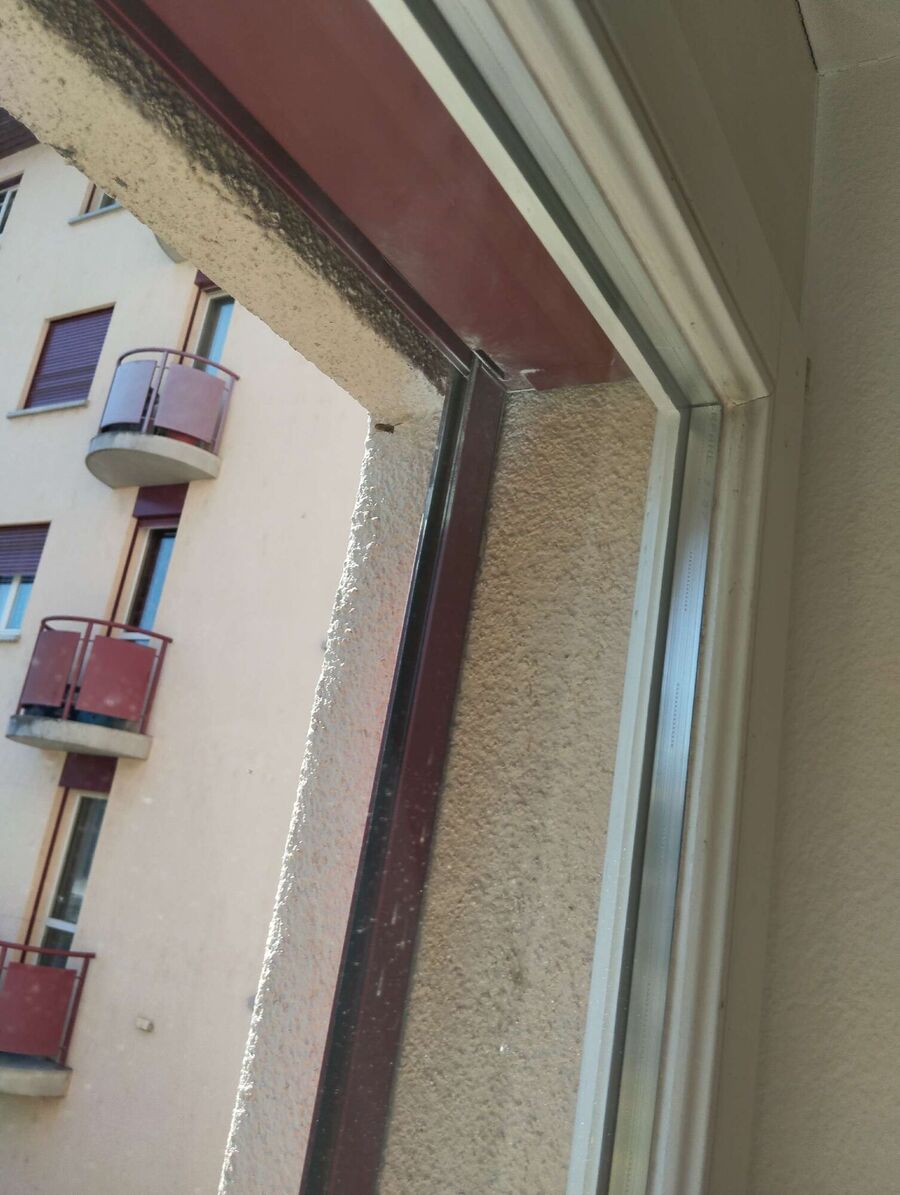Relocate bees &
Remove bee nest in Avers
Call now! 058 510 22 54
Have the bees' nest professionally removed in Avers
Bees are fascinating and essential creatures for our ecosystem. There are over 20,000 species of bees worldwide, and they vary in size, color and behavior. Honey bees, known for their honey production, live in large, well-organized colonies. Wild bees, on the other hand, are often solitary and play an important role in pollination. The necessity for bee relocation or removal can arise from various circumstances, such as a wild hive posing an immediate danger to people with allergies or bees nesting in undesirable places like residential buildings. Consulting experts is crucial. If you would like to have a bees' nest removed, then give us a call. We are specialists in the removal and relocation of bees in Avers.
Make an appointment: 058 510 22 54
Honey bee & wild bee- What is the difference?
Bees are fascinating insects that can be divided into different species, mainly honey bees and wild bees.
The honey bee, scientifically known as Apis mellifera, is the best-known bee species. They live in large, socially organized colonies consisting of a queen, many workers and a few drones. Honey bees are famous for their ability to produce honey and play an important role in agricultural pollination. They are generally less aggressive and tend to live close to human settlements.
Wild bees, on the other hand, are a diverse group comprising thousands of species. Many wild bee species are solitary, meaning that each individual bee builds and manages its own nest area. Wild bees generally do not produce honey, but are efficient pollinators for many wild and cultivated plants. They vary greatly in size, color and behavior and are often adapted to specific environments or plant species.

The honey bee, known as Apis mellifera, lives in social colonies and is famous for its honey production. They are important pollinators in agriculture and nature. Honey bees are recognizable by their distinctive appearance and complex behavior, including communication through the bee dance. They are generally peaceful, but can sting in defense of their hive.

Wool bees, also known as Anthidium, are solitary wild bees that line their nests with plant fibers. They are small to medium sized, colorful with different patterns and effective pollinators, which are particularly active in summer. These bees are peaceful and only sting in self-defense, being important players in the ecosystem.

Sand bees, part of the genus Andrena, are solitary wild bees that nest in sandy soils. Each female builds her own underground nest with several brood chambers. They are important pollinators in spring, non-aggressive and contribute significantly to biodiversity. Their small size and inconspicuous appearance make them less well-known than other bee species.

Bumblebees, known as Bombus, are furry, large bees that live in small colonies. They are excellent pollinators, especially in cooler climates and for plants with deeper flowers. Bumblebees are generally peaceful and only sting in self-defense. Their adaptability makes them an important part of the ecosystem.
Have bees relocated by an expert in Avers
As professional pest controllers, we specialize in the removal of bee nests and the relocation of bees in Avers. The need to handle bee removal or relocation arises when bees are dangerous to humans or settle in improper places. Our clients often seek our assistance for bee removal from their homes or relocating them to gardens. We ensure the bees receive a secure and eco-friendly new habitat. Using advanced methods, we relocate the bees safely and effectively, always keeping their welfare and ecological importance in mind. With our expertise, we guarantee a responsible and sustainable solution for bee relocations from the exterminator in Avers.
24 hour emergency service
Do you need help IMMEDIATELY? Call now 058 510 22 54
100% discretion in use
Out of discretion, we refrain from any advertising imprints.
Fast and effective
As professional pest controllers, we specialize in bees.
Certified employees
Our employees are certified by the VSS .
Current news about bees
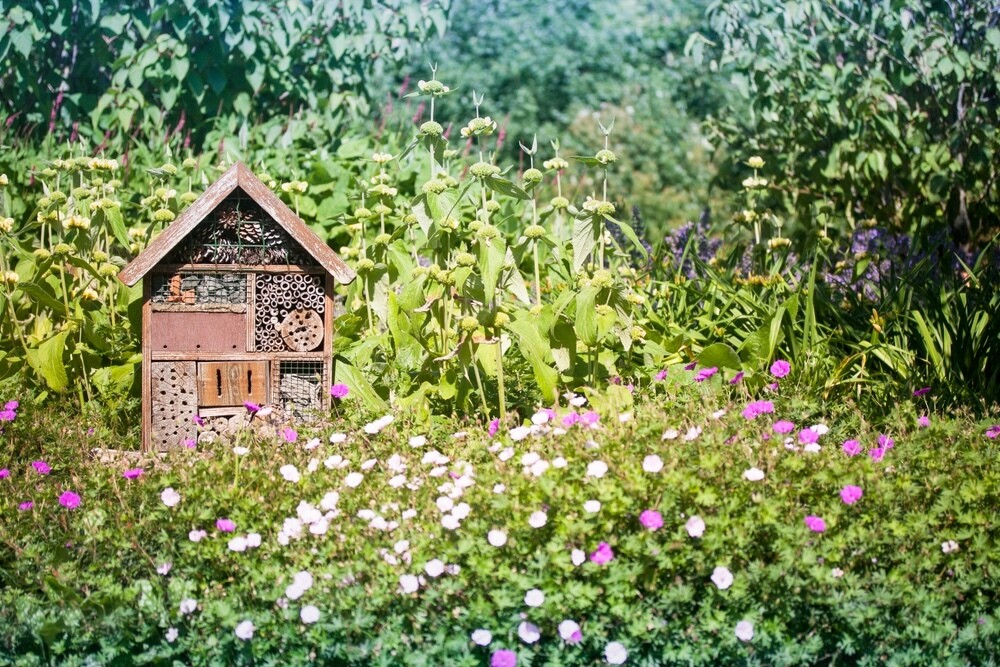
02.12.2025 Wild bees in the garden
Wild bees contribute significantly to garden biodiversity and are crucial for effective plant pollination. By choosing bee-friendly plants and providing appropriate nesting habitats, garden owners can actively help protect these vital pollinators. Our bee experts are available to offer guidance on how to design a garden that attracts and supports wild bee populations.Buy a wild bee hotel
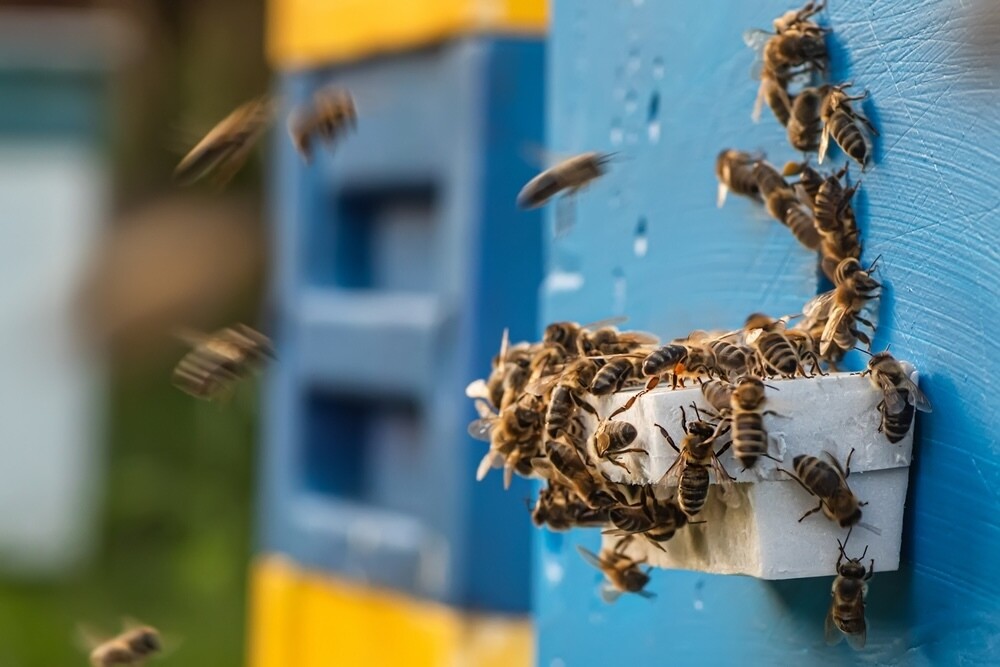
25.11.2025 Asian hornet dangerous?
The Asian hornet represents a serious danger to bee populations, especially honey bees, which it deliberately hunts. Its aggressive behavior disrupts the bees' natural activities, resulting in a marked reduction in pollination. To curb its expansion, specific monitoring and control measures are being carried out in impacted areas.
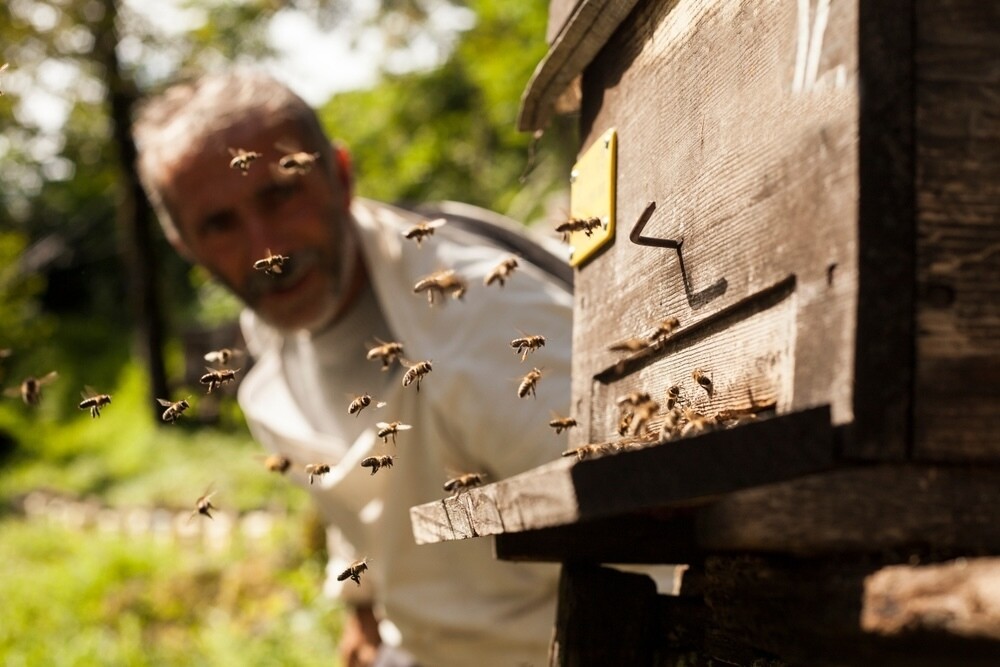
18.11.2025 Relocate bees correctly
To ensure a safe bee relocation, the involvement of a skilled professional is crucial. It's important to take appropriate measures to safeguard both the bees and people nearby, minimizing stress on the colony and reducing the chance of stings. The new location should be thoughtfully chosen, offering sufficient food sources and protection from the elements.

11.11.2025 Insect protection in Switzerland
Switzerland supports insect conservation through various initiatives aimed at preserving natural habitats and reducing pesticide usage. These actions help sustain insect diversity—particularly bee species essential for pollination—and contribute significantly to long-term ecological sustainability. For more information, visit: Insects-Switzerland
Protection for humans & bees
The process of relocating bees in Switzerland is both significant and delicate. Our accredited team specializes in managing these relocations to ensure both people and bees are safe. When relocating bees to Avers we make sure to follow the latest ecological guidelines and methods. Through training, we ensure that every step of the bee nest relocation process is based on current best practices, ensuring a responsible approach to our environment and the bees in Avers.
You can reach us by phone at 058 510 22 54 or make an uncomplicated appointment request via our contact form to have bees removed or relocated We are flexible and will come to you quickly even in an emergency.
Bees around the house & in the garden - Dangerous or useful?
Bees play a crucial role in our ecosystem as pollinators. They contribute to biodiversity and are necessary for the pollination of various plants that provide food. In gardens, bees are often valued for their benefits to flowers, vegetables, and fruits. However, bees on or inside the house can cause problems. A single bee in a garden shed is typically harmless, but a hive in or around the house can be a challenge. It is important to know that bees can sting, especially if they feel threatened. If you have discovered bees on your house and would like to have the bee nest removed, please contact us immediately. You should not remove a beehive yourself.
Professional pest controllers and beekeepers can relocate bees safely and effectively without harming them. As experts, we understand bee behavior and can take appropriate action to remove the bee nest and move it to a more suitable location where it can continue to play an important role in the ecosystem. By handling bees properly, we contribute to the conservation of these important insects and the health of our environment.
If you have discovered bees in your house or garden, do not hesitate to contact us. We are your experts for bee removal in Avers. Make an appointment and we'll take care of the rest. - Call us now! 058 510 22 54
Frequently asked questions & answers about bees in Avers
Honey bees thrive in extensive, structured colonies and are famous for their ability to produce honey. Wild bees, however, are mostly solitary and do not produce honey, showing a wider range of diversity in appearance, size, and behavior.
Bees, through their pollination activities, are fundamental for the reproduction of many plants, including crops, and are critical for maintaining ecosystem stability and biodiversity. Contact us if you would like to relocate bees or have a bee nest removed. 058 510 22 54
Bees in the garden will generally remain harmless if their nests are left undisturbed. They usually sting mainly in self-defense. For relocation, you can consult an exterminator or beekeeper. Bees in the garden can also be relocated by an exterminator like us, or a beekeeper.
When a beehive is on your house, seeking professional help for relocation is a good idea. Handling it yourself can be dangerous. Experts will relocate the bees safely, minimizing risk to both humans and animals.
The task of relocating bees in Switzerland necessitates professionals who have specialized training to handle the bees safely and protect their environment. This involves careful transportation and settling in a new location.
In Switzerland, there are legal standards in place to safeguard both the well-being of bees and human safety during relocations. Companies must adhere strictly to these regulations.
Honey bees are typically more uniform in size and color and thrive in large colonies, while wild bees show considerable variation in size, shape, and color and frequently live alone. Wild bees are generally less vividly colored compared to honey bees. If you are not sure whether it is a bee, wasp or hornet, the information on the linked pages will help you.
If there’s a solitary bee in the house, opening a window often guides it outside. Keep calm and avoid scaring the bee, as it is typically non-aggressive unless it feels trapped.
Do you have more questions about bees? Then take a look at our FAQ's about bees. If you have any questions or are looking for information on European hornets and wasps, you can find it here remove-hornets.ch and wasp-removal.ch.
Inquiry form private households
For an uncomplicated request for the removal of bee nests or the relocation of bees, please use our contact form for private individuals.
Real estate order form
For an uncomplicated inquiry about relocating bees or removing bee nests, please use our contact form for companies.
Removing & relocating bees
Öffnungszeiten:
Monday - Friday
07:30 - 19:30
Saturday & Sunday
08:00 - 17:00
